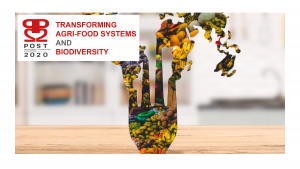الملاحظات التقييمية الرسمية على الحوارات إلى قمة الأمم المتحدة للنظم الغذائية لعام 2021
نوع الحوار
بدعوة من
لغة فعالية الحوار
التاريخ/الوقت
إلى:
نطاق التركيز الجغرافي
التنسيق
يُرجى مراجعة التفاصيل أدناه للحصول على معلومات التسجيل إذا كانت متوفرة أو الاتصال بمنظم الحوار إذا كنت ترغب في الحضور.
الوصف
The fifth edition of the Global Biodiversity Outlook defined pathways to reaching the Convention on Biological Diversity’s 2050 Vision of Living in Harmony with Nature. Among the eight main transitions needed to put the world on track to bending the curve of biodiversity loss, the GBO5 highlighted the role of agri-food systems transformation in:
– “Sustainable agriculture transition: Redesigning agricultural systems through agro-ecological and other innovative approaches, so as to enhance productivity while minimising negative impacts on biodiversity.”
– “Sustainable food systems transition: Enabling sustainable and healthy diets with a greater emphasis on a diversity of foods, mostly plant-based, and more moderate consumption of meat and fish, as well as dramatic cuts in the waste involved in food supply and consumption.”
Indeed, a successful Global Deal for Nature and People can only be one that truly puts the world on the path to an equitable, carbon-neutral, and nature-positive world and creates bridges between biosphere protection and sustainable development.
Agri-food systems count among the most pressing contemporary challenges and opportunities to trigger these positive changes for nature and people. At the same time, agri-food systems transformation has an important leverage to bring progress for biodiversity, climate and human development. From unsustainable farming practices and value chains, harmful agricultural subsidies, imported deforestation to food security, healthy nutrition and diet changes, climate-smart agriculture and agroecology, green jobs and equity in supply chains, the evolution of agri-food systems offers many opportunities for a green and equitable recovery. While some very ambitious plans – including the EU Farm to Fork Strategy– offer innovative solutions to this end, a strong science-based policy dialogue is needed to align plans for a sustainable transition of agri-food systems, including food security and nutrition action with the respect of the planet’s health and prosperity needs.
This webinar will present some of the most salient points of such a transformative ambition, and will open the space to discuss how the path to CBD COP15 and the upcoming UN Food Systems Summit in September 2021 could become a turning point for agriculture, food systems, biodiversity and sustainable development.
الشكر والتقدير


